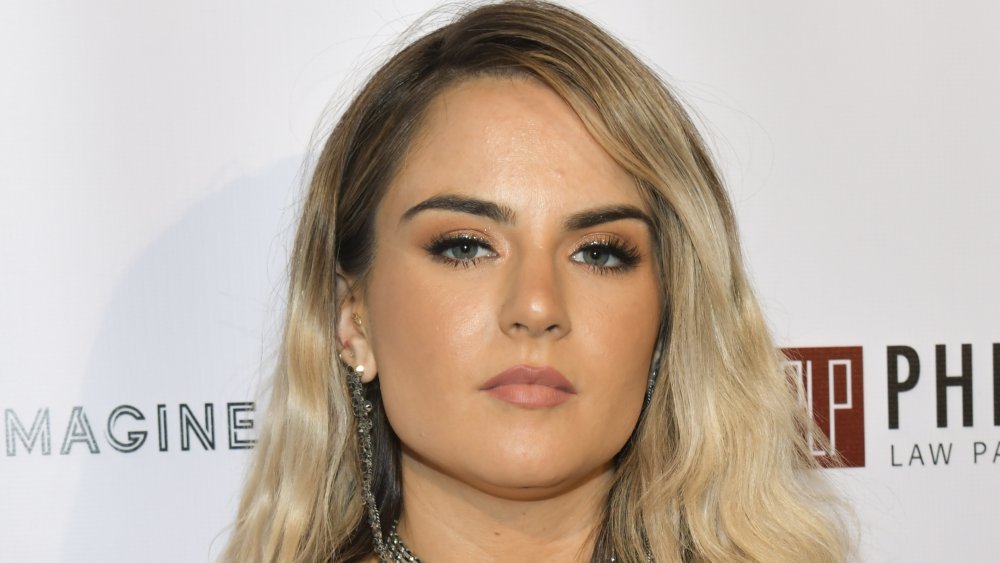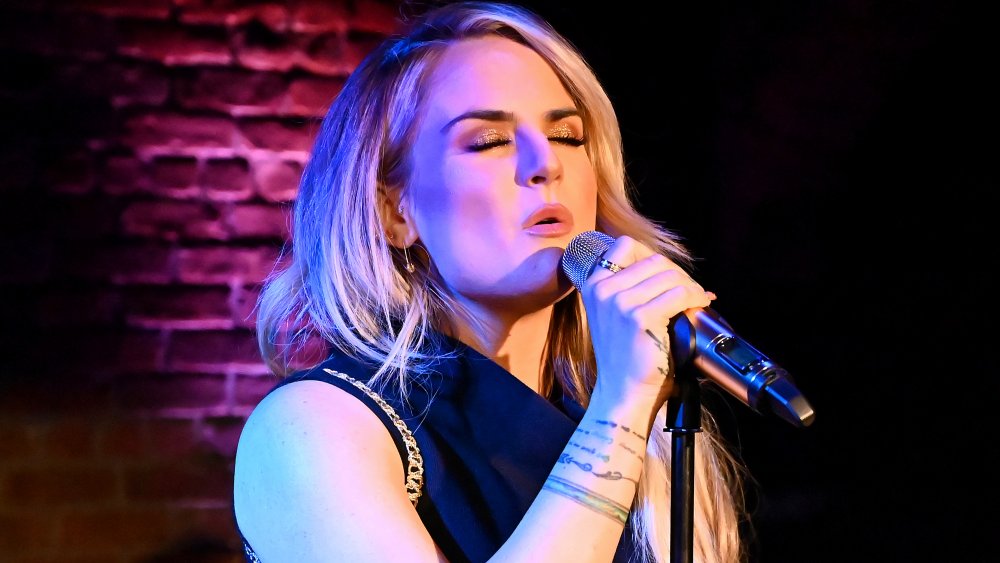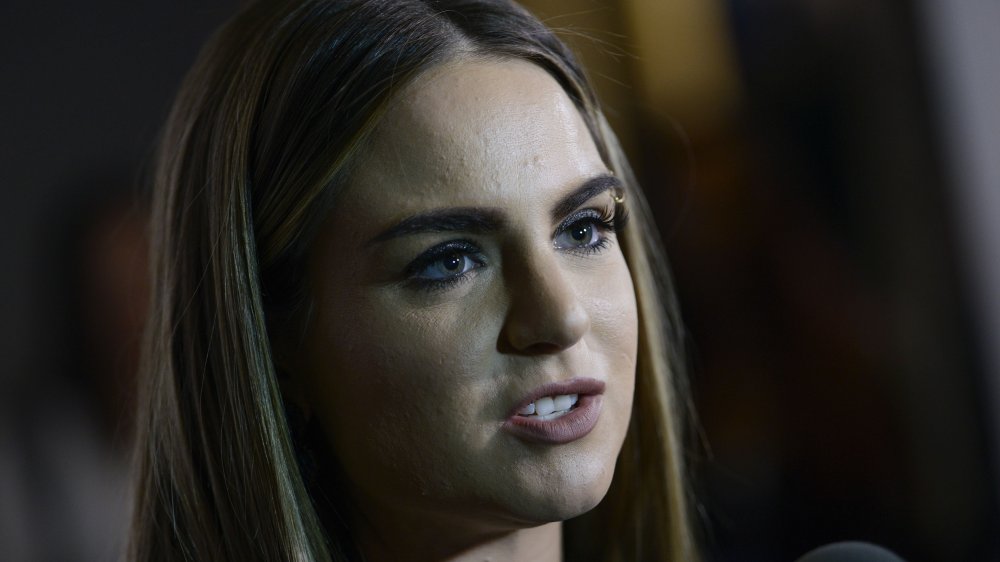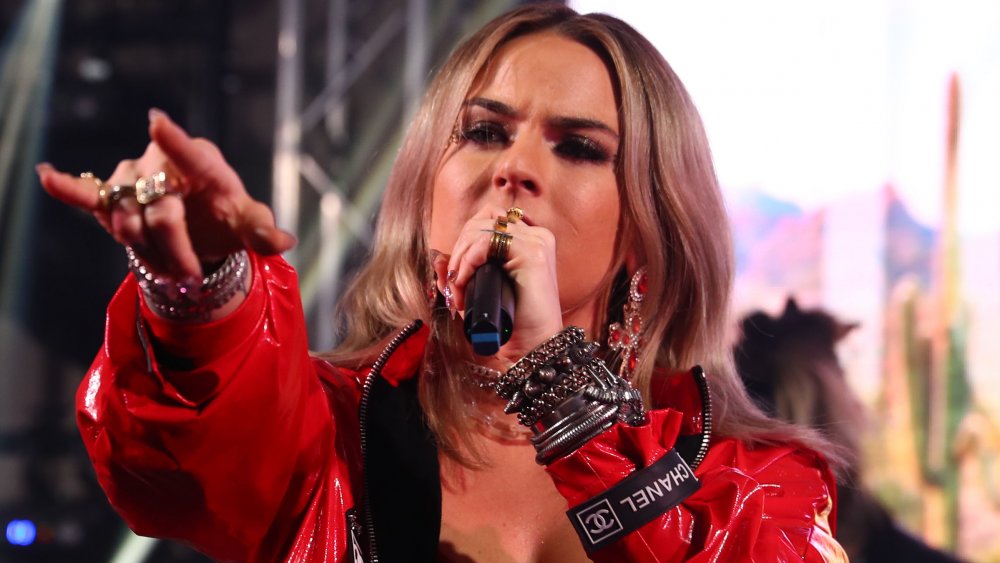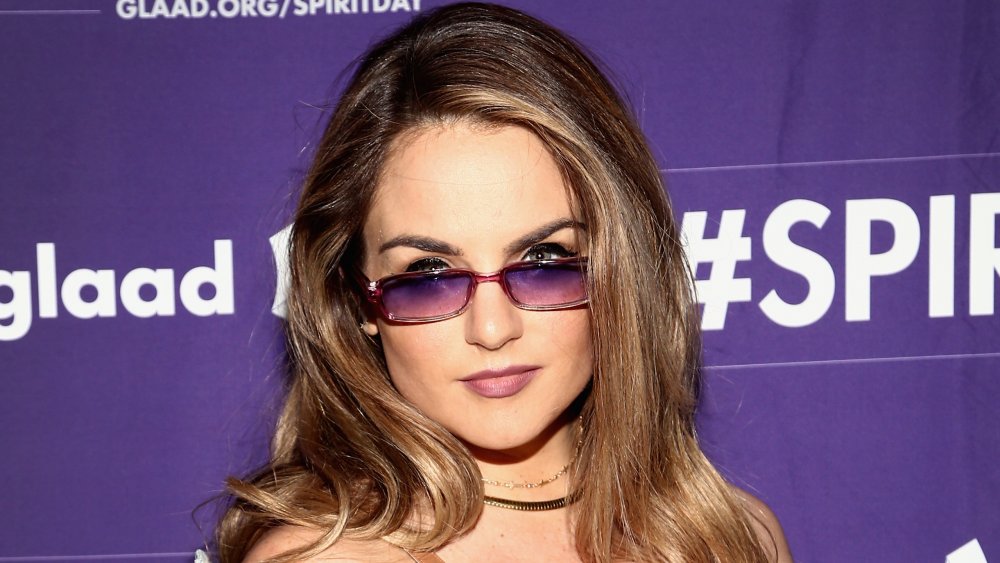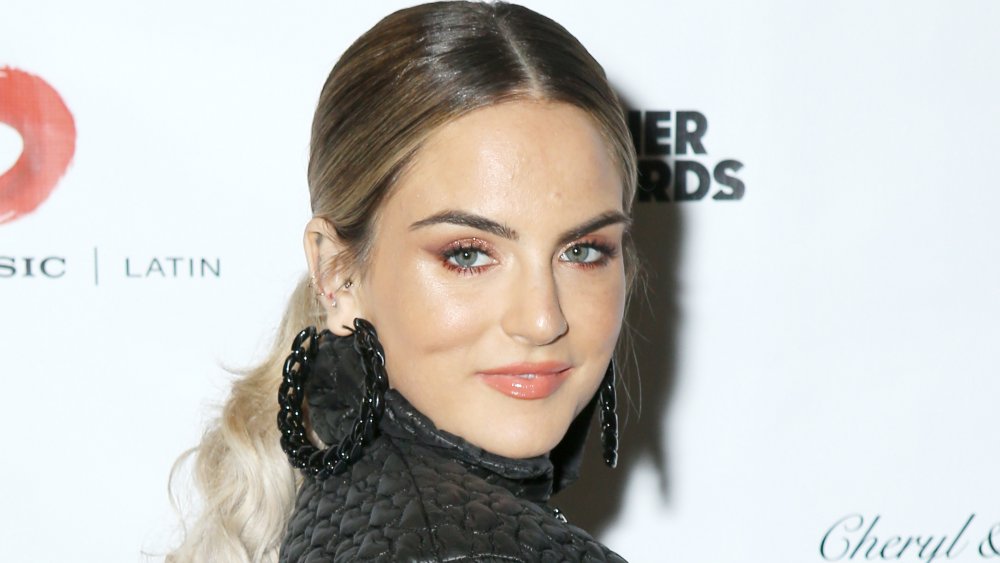The Untold Truth Of JoJo
In 2004, soon-to-be teen sensation JoJo released the song "Leave (Get Out)" from her debut, self-titled album, JoJo. The single peaked at No.12 on the Billboard Hot 100, leaving the pop world with high hopes that the teen would follow in the footsteps of pop divas Britney Spears and Christina Aguilera and become the newest face of pop music.
Two years later, JoJo released The High Road, which reached No. 3 on the Billboard 200. The breakout single from the album was "Too Little Too Late." Competing with songs like Justin Timberlake's "SexyBack," Fergie's "London Bridge" and the Pussycat Dolls' "Buttons," the pop and R&B singer was holding her own. As of this writing, it's still the singer's highest charting single.
The massive success at such a young age meant JoJo had a lot to prove and plenty of time to do it. She had the pipes and the teen fan base but then, she seemingly disappeared. With no third album in sight, fans were left bewildered. So what's the untold truth?
JoJo sued her record label
For pop and R&B singer JoJo, the hold up on her third album had to do with her label at the time, Da Family Entertainment/Blackground Records. In fact, according to Buzzfeed, in 2009, the singer filed a lawsuit against the label. In addition to "cit[ing] a breach of contract," JoJo also "alleg[ed] the label failed to secure distribution for her album and forced her into a state of limbo." Per the outlet, the singer had "signed a seven-album deal" when she was just 12 years old and "was unable to break her contract."
While her initial suit ultimately fell through, the singer sued again in July 2013, according to The Hollywood Reporter. In documents obtained by THR, JoJo claimed that she was "legally allowed to break free of Blackground and Da Family because she'd signed with them as a minor." According to the outlet, per laws in New York and California, "JoJo could not be bound to [the contract] after a period of seven years."
The singer also alleged that the label failed to pay producers and vendors she worked with, thus harming her reputation as an artist.
JoJo suffered an eating disorder
Once a teen idol, JoJo belonged to the same label as the late singer Aaliyah, Blackground Records. Aside from holding JoJo back from releasing a third album and reportedly keeping her first two albums – JoJo and The High Road – from streaming services, the singer alleges the label put her on a strict 500-calorie a day diet.
"When I was 18, I remember being sat down in the Blackground office, and the president of the label being like, 'We just want you to look as healthy as possible'," JoJo explained in a 2020 interview with Uproxx. "I ended up getting put with a nutritionist that had me on a 500-calorie a day diet, and I was on these injections that make you have no appetite."
In the interview, the singer went on to explain how the diet affected her self-esteem, saying, "I was like, 'Let me see how skinny I can get, because maybe then they'll put out an album. Maybe I'm just so disgusting that no one wants to see me in a video and that they can't even look at me'."
JoJo also recalled turning to drugs and alcohol later in life, saying, "I needed to be buzzed to feel okay. I would go to the edge and stand on my tiptoes on the edge and then come back. I should be dead."
The singer's fans started a #freejojo movement
When news broke that pop teen idol JoJo was suing her label in 2013, fans rallied behind her, launching the #freejojo movement to spread the word and get the singer the support she needed. "It made me feel out of control, like a little girl, disempowered," JoJo said of the lock up with her label in a 2020 interview with People. "I felt confused. What I always come back to is, 'What could I be doing differently, and how is this my fault?' I guess it just makes me feel more in control to think like I must have done it."
She continued: "It was very hard for me to accept something that didn't make sense. Why would they not want to put out an album? They weren't putting out anybody's album. To this day, Aaliyah's music is not available on streaming services because they haven't done a deal with the streaming providers."
The pressure from fans and the #freejojo movement seemed to work. By the end of 2013, JoJo's label released the singer, and in January 2014, JoJo announced she signed a new deal with Atlantic Records, per the Los Angeles Times.
JoJo re-recorded her old albums
After being released from her contract with her former label, Blackground Records, JoJo got straight to work. In 2016, she finally released her third studio album Mad Love – a decade after her second album hit the airwaves. However, her first two albums, which brought JoJo her success, were still not on streaming services, remaining under the control of her former label.
In a 2019 interview with W Magazine, JoJo explained her frustration. "I wanted my music to be out there because if people were just discovering me for the first time, it looked like I started my career in 2016 with Mad Love. That was really weird for me, especially because I put out my first album when I was 13 in 2004." That's why the former teen idol re-recorded her 2004 and 2006 album releases – JoJo and The High Road – in 2018 under her own company, Clove Music.
"A way that I was able to change that narrative in the last couple years was by starting my own company [Clove Music]," the singer told People in 2020. "... I was tired of seeing people being like, 'Why did you take your albums down from Spotify?' They were never there. I would never do that."
She added: "Why would I be a weirdo and want to erase my history? That makes no sense. I like money; I like people to be able to go back and have access to my songs whenever they want."
JoJo's real name is Joanna Levesque
In May 2020, JoJo released her fourth studio album, Good to Know. With her former label behind her, the singer had a new mission of piggybacking off her teen success while stepping into a newer, sensual sound. "When I was younger, I thought that what was sexy was men wanting to have sex with me, and that's not what I find sexy anymore. What I think is sexy, men might not like at all — but if it makes me feel good, I'm into it," she told People in 2020.
Despite the new sound, JoJo has vowed to go by JoJo instead of going by her real name, Joanna Levesque. "I think the whole process of changing your name — I'm not into it. It's weird," the singer told ABC News. "I'm not trying to have a moment where it's dropping the 'lil' from your name. I don't really feel necessarily that I have anything to prove. People can call me whatever they want."

